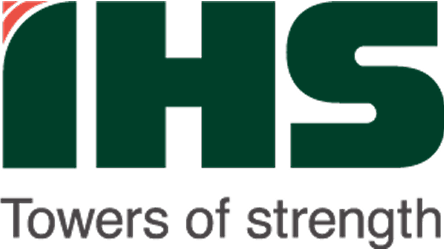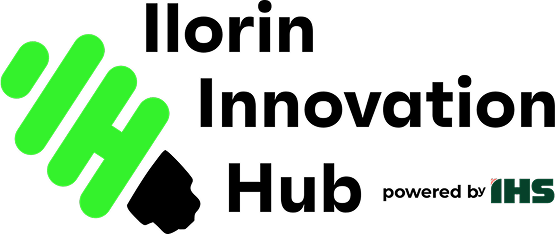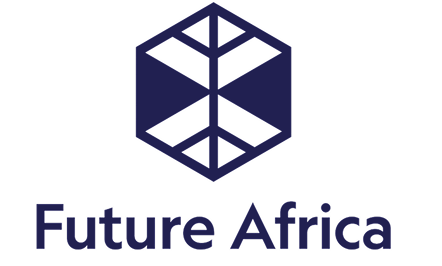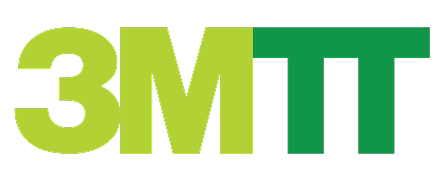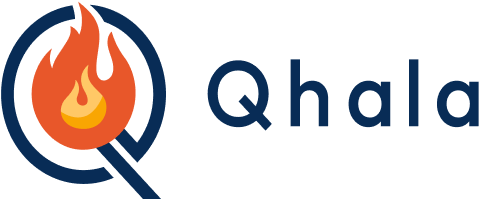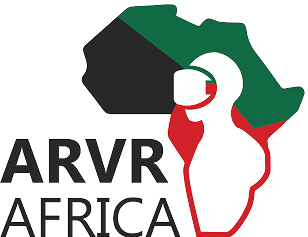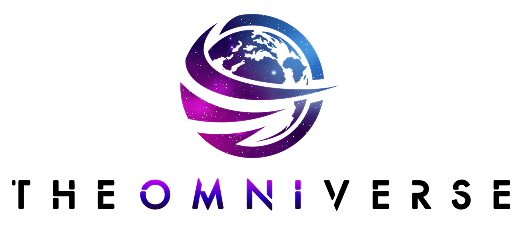Africa Deep Tech Challenge 2025
Create breakthrough solutions that thrive under constraints and unlock Africa's deep tech potential.
powered by Future Africa and in collaboration with Ilorin Tech Hub, CcHub, and IHS
2025 Finals Results
The live finals took place on September 13, 2025, where eight standout teams pitched in real time to our judges and community, culminating in the announcement of this year's Africa Deep Tech Challenge winners.
Project FarmSpeak
Empowers farmers with smart tools.
FarmSpeak empowers livestock farmers with a solar-powered IoT device (Smart PenKeep) for pen climate monitoring and automation, and an AI-powered farm management app (FS Manager) for tracking, disease detection, and planning, enabling efficient farm control in resource-constrained environments.
Cure Bionics
Bionic prosthetics for amputees.
Cure Bionics develops smart, lightweight, and customizable bionic prosthetic arms enhanced with 3D printing and AI, offering myoelectric control, adjustable sockets, a mobile app with real-time EMG feedback, and gamified rehabilitation.
Muscle
Digitizes African small retail operations.
Muscle POS is a handheld, portable, and battery-powered device that revolutionizes small retail operations in Africa through barcode scanning, real-time inventory tracking, and transaction processing.
Audience Choice Award
$500 community prize
Selected live by the finals audience on September 13, 2025, celebrating the project that resonated most with participants in the room.
IHS Challenge Prize Winner
$4,000 grant + grid resilience support
Recognizing the premier power-management solution co-developed with IHS Towers.
Finals Recording
Watch the full finals pitch replay on YouTube.
Meet the Finalists
Our top eight teams advanced from hundreds of submissions to pitch live at the finals, showcasing practical breakthroughs in resource-constrained computing.
Muscle
Muscle POS is a handheld, portable, and battery-powered device that revolutionizes small retail operations in Africa through barcode scanning, real-time inventory tracking, and transaction processing.
Digitizes African small retail operations.
Edge Vendr - Snooker Billiard Ticketing Control System
This project develops a modular, smart electronic controller that retrofits onto existing snooker tables to enable digital payments and automated revenue collection, transforming the traditional cash-only system into an IoT-enabled experience for players and business owners.
Automates snooker tables, enables cashless play.
Project FarmSpeak
FarmSpeak empowers livestock farmers with a solar-powered IoT device (Smart PenKeep) for pen climate monitoring and automation, and an AI-powered farm management app (FS Manager) for tracking, disease detection, and planning, enabling efficient farm control in resource-constrained environments.
Empowers farmers with smart tools.
METAL
METAL is a low-cost, wireless payment transmitter that enables secure, contactless, and offline mobile payments in Nigeria by leveraging the existing NIBSS Instant Payment (NIP) infrastructure without relying on NFC, debit cards, or constant internet connectivity on the customer's device.
Offline, contactless, low-cost payments.
Heard
Heard is a wearable, real-time speech-to-text HUD that visually displays transcriptions of spoken speech to improve face-to-face communication for the hearing-impaired.
Speech-to-text HUD for deaf.
PERWER
PERWER is a smart, ultra-low-power technology that tracks energy use at mini-grids and telecom towers, monitoring temperature, power flow, battery health, and fuel usage, and sending real-time updates to a dashboard.
Tracks and manages energy usage.
Cure Bionics
Cure Bionics develops smart, lightweight, and customizable bionic prosthetic arms enhanced with 3D printing and AI, offering myoelectric control, adjustable sockets, a mobile app with real-time EMG feedback, and gamified rehabilitation.
Bionic prosthetics for amputees.
FieldEdge FL
This project is a lightweight federated-learning framework that trains soil-based crop-recommendation models directly on Raspberry Pi edge nodes, removing the need to stream raw sensor data to the cloud.
Trains crop recommendation models.
Meet the Semifinalists
These 16 outstanding projects reached the semifinal stage and laid the groundwork for this year’s finalists and champions.
Explore their submissions to see the breadth of innovation emerging from across the continent.
Edge Vendr - Snooker Billiard Ticketing Control System
This project develops a modular, smart electronic controller that retrofits onto existing snooker tables to enable digital payments and automated revenue collection, transforming the traditional cash-only system into an IoT-enabled experience for players and business owners.
Automates snooker tables, enables cashless play.
Muscle
Muscle POS is a handheld, portable, and battery-powered device that revolutionizes small retail operations in Africa through barcode scanning, real-time inventory tracking, and transaction processing.
Digitizes African small retail operations.
Feem
Feem is an advanced, cross-platform offline file transfer tool with built-in chat, designed for fast, local sharing without internet dependency, and expanding to include offline hardware called The Feem Box.
Offline cross-platform file transfer.
Project FarmSpeak
FarmSpeak empowers livestock farmers with a solar-powered IoT device (Smart PenKeep) for pen climate monitoring and automation, and an AI-powered farm management app (FS Manager) for tracking, disease detection, and planning, enabling efficient farm control in resource-constrained environments.
Empowers farmers with smart tools.
METAL
METAL is a low-cost, wireless payment transmitter that enables secure, contactless, and offline mobile payments in Nigeria by leveraging the existing NIBSS Instant Payment (NIP) infrastructure without relying on NFC, debit cards, or constant internet connectivity on the customer's device.
Offline, contactless, low-cost payments.
AgroBot AI
AgroBot AI is an autonomous, AI-powered robot that performs on-the-spot soil testing and provides instant, tailored recommendations for seed selection, fertilizer use, and water management to smallholder farmers.
AI robot aids farmers.
FLUDIX-PET AUTOMATED INFUSION PUMP
FLUDIX is an intelligent, automated infusion management system with a wearable Vital Band that continuously monitors patient vitals and automatically adjusts IV fluid delivery to enhance safety, precision, and responsiveness, especially in critical care and under-resourced settings.
Automated IV fluid management.
Votelink
VoteLink is an offline-first, secure voting system utilizing Raspberry Pi, fingerprint scanning, and blockchain integration to enable verifiable, privacy-preserving votes even without internet access, with post-election syncing for transparency.
Enables secure, offline, verifiable voting.
SMART SAFE GUARD
This project is an automated system that continuously checks for gas leaks, alerts users through various methods (screen, buzzer, phone), and automatically cuts off electricity to prevent explosions.
Automated gas leak detection system.
ScaleNodes
ScaleNodes is a developer-first cloud platform offering scalable hosting, backend infrastructure, and container-based deployments for African businesses, aiming to physically locate its servers in Kenya.
Scalable cloud platform for Africa
Heard
Heard is a wearable, real-time speech-to-text HUD that visually displays transcriptions of spoken speech to improve face-to-face communication for the hearing-impaired.
Speech-to-text HUD for deaf.
PERWER
PERWER is a smart, ultra-low-power technology that tracks energy use at mini-grids and telecom towers, monitoring temperature, power flow, battery health, and fuel usage, and sending real-time updates to a dashboard.
Tracks and manages energy usage.
Cure Bionics
Cure Bionics develops smart, lightweight, and customizable bionic prosthetic arms enhanced with 3D printing and AI, offering myoelectric control, adjustable sockets, a mobile app with real-time EMG feedback, and gamified rehabilitation.
Bionic prosthetics for amputees.
FieldEdge FL
This project is a lightweight federated-learning framework that trains soil-based crop-recommendation models directly on Raspberry Pi edge nodes, removing the need to stream raw sensor data to the cloud.
Trains crop recommendation models.
AgriTrack: GPS Work Classification System
AgriTrack uses mathematical signatures from GPS data to objectively verify agricultural equipment usage, eliminating billing disputes and improving payment cycles for farmers.
Verifies agricultural equipment sharing billing.
AccraIQ
AccraIQ optimizes Accra's chaotic transit network by eliminating route redundancy while preserving service coverage, using a three-stage pipeline of DTW similarity analysis, HDBSCAN clustering, and Set Cover optimization.
Optimizes transit by reducing routes.
IHS Challenge Prize
6 projects offered power-management innovations in partnership with IHS Towers, with PERWER ultimately earning the dedicated prize.
About the Challenge
Africa Deep Tech Challenge 2025: Resource-Constrained Computing is a pan-African hackathon designed to spotlight and empower the next generation of innovators solving complex problems with limited resources. Whether it’s building AI models on edge devices, designing offline-first systems, decentralized compute or developing energy-efficient tech, this challenge invites you to rethink what’s possible when constraints inspire creativity. Resource-constrained computing solutions focus on optimizing computational tasks when resources like power, memory, and processing capabilities are limited, often in devices like communication devices, sensors, and embedded systems. This isn’t just about code or hardware—it’s about the journey. We’re looking for builders who can not only create solutions, but also tell the story of how they solved for Africa’s unique infrastructural realities. From agriculture to fintech, education to health, participants are encouraged to build in any domain—so long as your solution thrives under real-world constraints.
Get Started
Join us to build groundbreaking, efficient, and scalable technologies that could shape the future of computing in Africa—and beyond. The most compelling innovators will get funding, mentorship, and access to a pipeline of deep tech investment opportunities.
What to Build & Submit
What to Build
Build a working prototype that solves a real-world problem using resource-constrained computing. This could mean low-power solutions, offline capabilities, small-data AI models, efficient edge computing, or any smart adaptation to limited computing environments. Your solution can apply to any domain: healthcare, education, smart cities, fintech, climate, entertainment, agriculture, gaming and beyond.
What to Submit
A functional prototype or demo of your solution
A comprehensive project report including:
- - Problem definition and context
- - Identified constraints (e.g. power, data, compute, connectivity)
- - Documentation of design alternatives and final decisions
- - Tools used (AI, IoT, etc.) and why they were chosen
- - Performance tests and benchmarks
- - Screenshots or short videos showing your build in action
A short video (max 2 minutes) explaining your solution and development journey
Updated documentation and video (if part of semi-final or final round)
Prizes & Incentives
$20,000 in prizes
First Place
$8,000 in cash
1 winner
$8,000 USD Equity-Free Grant
Key Benefits:
- Fuel your growth with capital—no strings attached. Use it to refine your prototype, conduct more testing, or kickstart your startup journey.
- Get matched with top-tier engineers, product experts, and industry mentors to help you enhance your solution and prepare for investment.
- Fast-track conversations with early-stage deep tech investors interested in Africa’s most promising wildcard talent.
- Get profiled across our platforms and partner media outlets, giving your work and your voice visibility across the continent and beyond.
- Continued visibility and support through our innovation network, including startup accelerators, dev communities, and infrastructure partners.
Second Place
$5,000 in cash
1 winner
$5,000 USD Equity-Free Grant
Key Benefits:
- Fuel your growth with capital—no strings attached. Use it to refine your prototype, conduct more testing, or kickstart your startup journey.
- Get matched with top-tier engineers, product experts, and industry mentors to help you enhance your solution and prepare for investment.
- Fast-track conversations with early-stage deep tech investors interested in Africa’s most promising wildcard talent.
- Get profiled across our platforms and partner media outlets, giving your work and your voice visibility across the continent and beyond.
- Continued visibility and support through our innovation network, including startup accelerators, dev communities, and infrastructure partners.
Third Place
$3,000 in cash
1 winner
$3,000 USD Equity-Free Grant
Key Benefits:
- Fuel your growth with capital—no strings attached. Use it to refine your prototype, conduct more testing, or kickstart your startup journey.
- Get matched with top-tier engineers, product experts, and industry mentors to help you enhance your solution and prepare for investment.
- Fast-track conversations with early-stage deep tech investors interested in Africa’s most promising wildcard talent.
- Get profiled across our platforms and partner media outlets, giving your work and your voice visibility across the continent and beyond.
- Continued visibility and support through our innovation network, including startup accelerators, dev communities, and infrastructure partners.
IHS Prize Categ.
$4,000 in cash
1 winner
$4,000 USD Equity-Free Grant
Category Focus: This prize recognizes innovative solutions that address power management challenges in telecom infrastructure, emphasizing sustainability, efficiency, and new business models. Solutions should align with IHS’s goal of reducing its carbon footprint, enhancing operational efficiency, and future-proofing its energy services across diverse environments.
What We're Looking For: Participants are encouraged to submit ideas that support innovation in Power Managed Services, including but not limited to:
- Solar Off-Grid Power Solutions
- Hybrid Power-as-a-Service Models
- Battery Optimization and Lifecycle Management
- Remote Power Monitoring Tools
- Carbon Reduction Technologies for Site Operations
- Power Efficiency Algorithms or Embedded Systems
- Predictive Maintenance for Energy Equipment
- Energy Trading/Load Balancing Between Sites
- Power Infrastructure Analytics
Finalists (Top 8)
- Live demo opportunity during the finals
- 1:1 mentorship with deep tech professionals
- Professional documentation support
- Access to partner network
Semi-Finalists (At most 20)
- Recognition certificate
- Access to mentorship, workshops, and extended learning resources
All participants get access to webinars, templates, technical resources, and a vibrant community of innovators.
Meet the Judges

Omoju Miller
Fimio
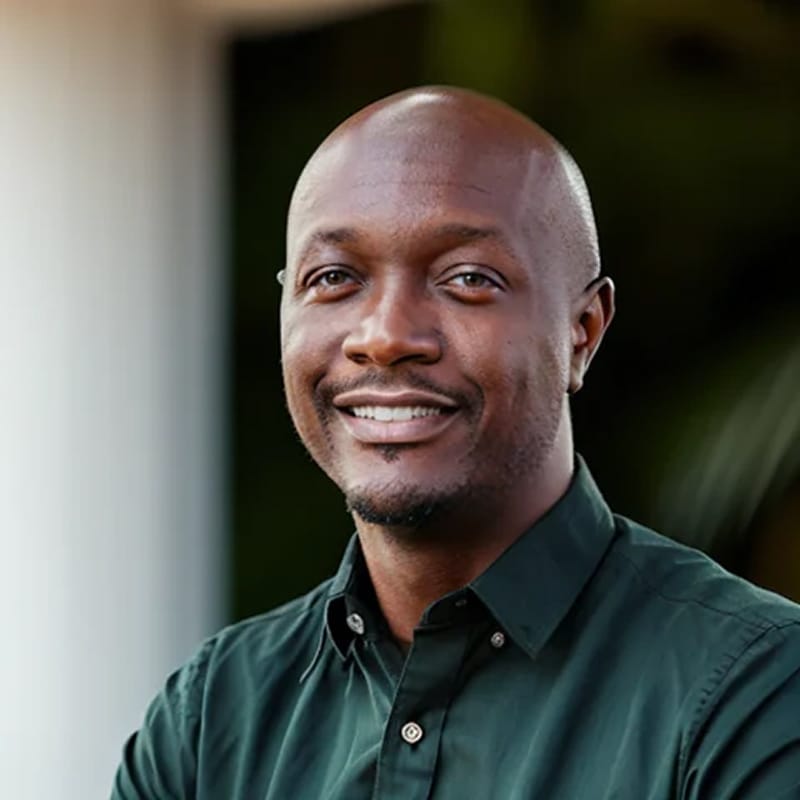
Alex Tsado
UduTech

Zak El Fassi
Zaigood
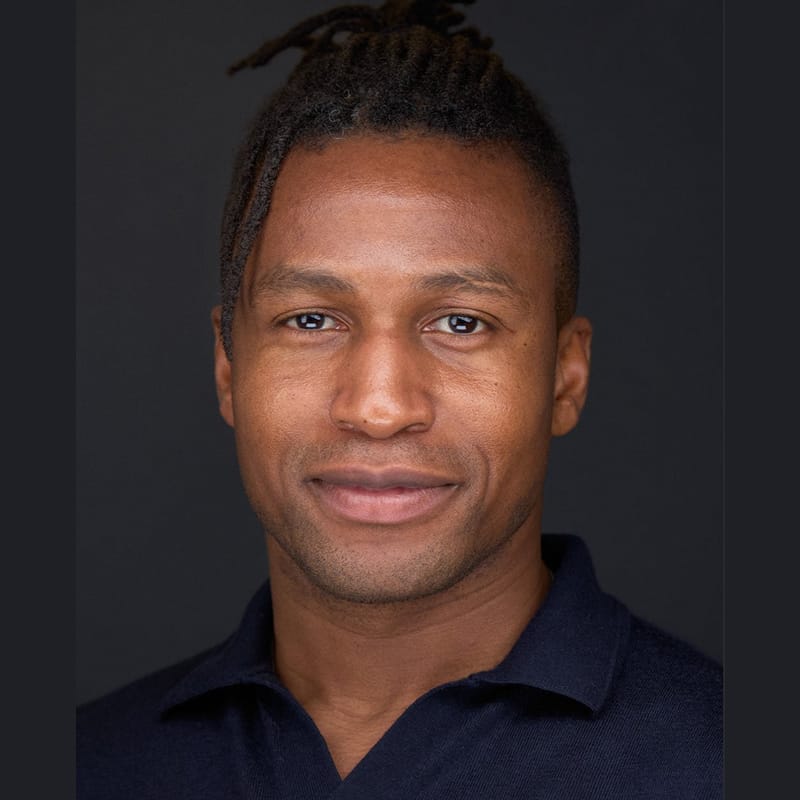
Silas Adekunle
Awarri

Judith Okonkwo
Imisi 3D

Mbangula Lameck Amugongo
Machine Learning
Judging Criteria & Winner Selection
Technical Implementation (30%)
- Functionality and performance in resource-constrained environments
- Application and understanding of first principles
- Code / Hardware quality and efficiency
- Integration of complementary technologies
- Effective use of limited computing resources
Creative Problem-Solving (30%)
- Novel approaches to addressing constraints
- Elegant solutions to complex problems
- Innovative application of existing technologies
- Adaptability to varying resource limitations
Process Documentation (20%)
- Quality and comprehensiveness of development documentation
- Clarity of thought process and decision-making
- Evidence of learning and iteration
- Transparency about challenges and solutions
Tool Orchestration (10%)
- Effective use of AI and other tools in the development process
- Strategic application of automation where appropriate
- Balance between human creativity and AI assistance
- Documentation of tool selection and usage
Usability and Relevance (10%)
- Practical application in African contexts
- User experience considerations
- Potential for real-world impact
- Scalability in resource-constrained environments
Winner Selection Process
Judges will assess both the final solution and the development journey. Emphasis will be placed on how participants approached problem-solving under constraints, made thoughtful technical decisions, and demonstrated innovation throughout the process. Top scorers will advance to the live finals, where finalists will showcase their work in real time. Judges will evaluate their ability to adapt, think on their feet, and explain their approach clearly to a live audience.
Challenge Timeline
Eligibility Criteria
- Open to individuals or teams of up to 4 members.
- Participants must be aged 18 or older and reside in any of the listed African countries.
- No prior startup or funding status required—this challenge is for emerging innovators.
- All submissions must be the original work of the team.
- Teams can use open-source tools or libraries but must cite them clearly.
You agree to the Challenge Participation Agreement
Eligible Countries
- Algeria
- Angola
- Benin
- Botswana
- Burkina Faso
- Burundi
- Cameroon
- Cape Verde
- Central African Republic
- Chad
- Comoros
- Congo
- Congo the Democratic Republic of the
- Cote d'Ivoire
- Djibouti
- Egypt
- Equatorial Guinea
- Eritrea
- Ethiopia
- Gabon
- Gambia
- Ghana
- Guinea
- Guinea-Bissau
- Kenya
- Lesotho
- Liberia
- Libyan Arab Jamahiriya
- Madagascar
- Malawi
- Mali
- Mauritania
- Mauritius
- Morocco
- Mozambique
- Namibia
- Niger
- Nigeria
- Rwanda
- Sao Tome and Principe
- Senegal
- Seychelles
- Sierra Leone
- Somalia
- South Africa
- Swaziland
- Tanzania United Republic of
- Togo
- Tunisia
- Uganda
- Zambia
- Zimbabwe
Learning & Resources (Curriculum)
Explore these modules to build foundational knowledge and advanced skills for the challenge. Each module includes curated resources like papers, tutorials, and case studies.
Module 1: Foundations of Resource-Constrained Computing
An overview of fundamental principles and challenges in resource-constrained computing.
Key Topics:
- Core concepts, challenges, and opportunities
- Historical context and evolution
- Key principles and design considerations
Recommended Resources:
Leveraging AI to Advance Science & Computing Education across Africa
George Boateng (2024)
http://arxiv.org/abs/2402.07397v2
The Case for Globalizing Fairness: Colonialism, AI & Health in Africa
Mercy Asiedu, Awa Dieng, Iskandar Haykel, et al. (2024)
http://arxiv.org/abs/2403.03357v2
Globalizing Fairness Attributes in Machine Learning: Health in Africa
Mercy Nyamewaa Asiedu, Awa Dieng, Abigail Oppong, et al. (2023)
http://arxiv.org/abs/2304.02190v1
How Africa’s Deep-Tech Start-ups Are Shaping the World | AfricArena Panel
AfricArena (2025)
https://www.youtube.com/watch?v=88SlWLUqNKQ
Adapt or Be Left Behind – AI & African Innovation (African Tech Roundup)
African Tech Roundup (2025)
https://soundcloud.com/african-tech-round-up/adapt-or-be-left-behind-marie-lora-mungai-on-ai-and-the-future-of-african-filmmaking
Make Your Digital Service Work Offline, Online & Everywhere
ICTworks (2023)
https://www.ictworks.org/digital-service-work-offline-online/
Blockchain without Internet
Grassroots Economics (2018)
https://www.grassrootseconomics.org/blockchain-without
Module 2: Edge Computing & Distributed Systems
Explore edge computing architectures and distributed system design for unreliable connectivity.
Key Topics:
- Edge architectures for limited infrastructure
- Designing for unreliable connectivity
- Data processing and storage strategies
Recommended Resources:
AI on the Edge: Rethinking AI-based IoT Applications
Qianlin Liang, Prashant Shenoy, David Irwin (2020)
http://arxiv.org/abs/2003.12488v1
Democratizing AI in Africa: Federated Learning for Low-Resource Edge Devices
Jorge Fabila, Víctor Campello, Carlos Martín-Isla, et al. (2024)
http://arxiv.org/abs/2408.17216v1
Parameter-Efficient Fine-Tuning for Brain-Tumor Segmentation in SSA
Bijay Adhikari, Pratibha Kulung, Jakesh Bohaju, et al. (2024)
http://arxiv.org/abs/2412.14100v1
Why Is Edge Computing the Next Big Thing in Africa?
SEACOM (2023)
https://seacom.co.za/news/why-is-edge-computing-the-next-big-thing-in-africa
WaziLab – Open IoT & Edge Training Platform
Waziup e.V. (2024)
https://www.waziup.io/capacity-building
IPv6 and the IoT — AFRINIC Primer
AFRINIC (2021)
https://afrinic.net/ipv6-and-the-iot
Module 3: Low-Power IoT & Sensor Networks
Learn energy-efficient IoT and sensor network design tailored for low-power environments.
Key Topics:
- Energy-efficient hardware & software design
- Sensor-network architectures for African contexts
- Communication protocols for low-power devices
Recommended Resources:
Neuromorphic IoT Architecture for Efficient Water Management
Mugdim Bublin, Heimo Hirner, Antoine-Martin Lanners, Radu Grosu (2024)
http://arxiv.org/abs/2410.19562v1
MosquIoT – Monitoring *Aedes aegypti* with IoT & ML
Javier Aira, Teresa Olivares Montes, Francisco Delicado, Darìo Vezzani (2024)
http://arxiv.org/abs/2401.16258v1
Towards Precision Aquaculture: Cost-Effective IoT Approach
Rafael Teixeira, Juliana Puccinelli, Luis Poersch, et al. (2021)
http://arxiv.org/abs/2105.11493v1
Use an Energy Harvesting Microcontroller to Eliminate IoT Battery Replacement
Stephen Evanczuk, DigiKey's North American Editors (2021)
https://www.digikey.com/en/articles/use-an-energy-harvesting-microcontroller-to-eliminate-iot-battery-replacement
5 Practical Tips for Low-Power Design
Jacob Beningo (2023)
https://www.embedded.com/5-practical-tips-for-low-power-design/
Writing Power-Efficient Code for Embedded Systems (Webinar)
Embedded World Conference (2024)
https://www.youtube.com/watch?v=zaicbKnZ1fQ
Building Offline-First Apps with React Native & AsyncStorage
Muhammad Saadullah (2024)
https://dev.to/msaadullah/building-offline-first-apps-using-react-native-react-query-and-asyncstorage-1h4i
Module 4: Connectivity Solutions for Limited Infrastructure
Understand connectivity options like delay-tolerant and mesh networks for offline-first systems.
Key Topics:
- Delay-tolerant networking
- Mesh networks & community connectivity
- Offline-first design principles
Recommended Resources:
LoRa Network Performance under Ambient Energy Harvesting
Orestis Georgiou, Constantinos Psomas, Eleni Demarchou, Ioannis Krikidis (2021)
http://arxiv.org/abs/2102.02001v1
Super-LoRa – Enhancing Throughput via Payload Superposition
Salah Abdeljabar, Mohamed-Slim Alouini (2025)
http://arxiv.org/abs/2504.11927v1
LoRa & LoRaWAN for IoT Applications (Official Docs)
(2023)
https://www.thethingsnetwork.org/docs/lorawan/
IoT Standards and Protocols
Trevor Harwood, Postscapes (2020)
An overview of protocols involved in Internet of Things devices and applications. Clarifies IoT technology stack layers and provides head-to-head protocol comparisons for constrained devices and cross-platform deployments.
https://www.postscapes.com/internet-of-things-protocols/
World Mobile’s Mesh-Network Roll-Out in Zanzibar
Coindesk (2021)
https://www.coindesk.com/markets/2021/08/16/world-mobile-wraps-39m-token-sale-to-launch-mesh-network-in-zanzibar
Module 5: TinyML & Efficient Computing
Dive into TinyML and model optimization techniques for deployment on constrained devices.
Key Topics:
- ML for ultra-low-power devices
- Model-optimization techniques
- Deployment strategies in constrained environments
Recommended Resources:
TinyML for Ultra-Low Power AI and Large Scale IoT Deployments: A Systematic Review
Nikolaos Schizas, Aristeidis Karras, Christos Karras, Spyridon Sioutas (2022)
https://www.mdpi.com/1999-5903/14/12/363
Globalizing Fairness Attributes in ML (Health in Africa)
Mercy Nyamewaa Asiedu, Awa Dieng, Abigail Oppong, et al. (2023)
http://arxiv.org/abs/2304.02190v1
Towards SAMBA: Segment Anything for Brain-Tumor Segmentation in SSA
Mohannad Barakat, Noha Magdy, Jjuuko George William, et al. (2023)
http://arxiv.org/abs/2312.11775v1
What We Know So Far: AI in African Healthcare
Naome Etori, Ebasa Temesgen, Maria Gini (2023)
http://arxiv.org/abs/2305.18302v2
TinyML & the Developing World – Pete Warden (TinyML Talk)
Pete Warden (2021)
https://www.youtube.com/watch?v=kBQh6JavcoQ
Use PlatformIO to Build Your tinyML Projects
Aurelien Lequertier, Edge Impulse (2020)
A comprehensive tutorial on integrating Edge Impulse with PlatformIO for embedded devices, making TinyML development more accessible.
https://www.edgeimpulse.com/blog/platformio/
Module 6: Case Studies & Applications
Review real-world case studies and best practices in resource-constrained computing applications.
Key Topics:
- Real-world implementations across sectors
- Frameworks & best practices
- Synthesis of lessons learned
Recommended Resources:
Building Low-Resource African Language Corpora
Audrey Mbogho, Quin Awuor, Andrew Kipkebut, et al. (2025)
http://arxiv.org/abs/2501.11003v1
iNatAg – Large-Scale Crop & Weed Image Benchmark
Naitik Jain, Amogh Joshi, Mason Earles (2025)
http://arxiv.org/abs/2503.20068v1
How Accurate Are Existing Land-Cover Maps for Agriculture in SSA?
Hannah Kerner, Catherine Nakalembe, Adam Yang, et al. (2023)
http://arxiv.org/abs/2307.02575v2
Low-Cost IoT Solutions for Agriculture (Project Collection)
Hackster.io (2023)
https://www.hackster.io/projects/tags/agriculture
First Time Building an LMS: Offline-First
Caleb Linden (2024)
https://polymorph.co.za/software-engineering-and-technology/first-time-building-an-lms-offline-first/
Ustad Mobile – Offline-Ready Learning Platform
Ustad Mobile (2024)
https://www.ustadmobile.com/
Kenyan Public WiFi Sensation BRCK Launches in South Africa
Toby Shapshak (2019)
https://www.forbes.com/sites/tobyshapshak/2019/11/12/kenyan-public-wifi-sensation-brck-launches-in-south-africa/
Data Science Africa 2024 – Nyeri Summer-School Keynotes
Data Science Africa (2024)
https://www.youtube.com/watch?v=0SNX6QrKHV4


